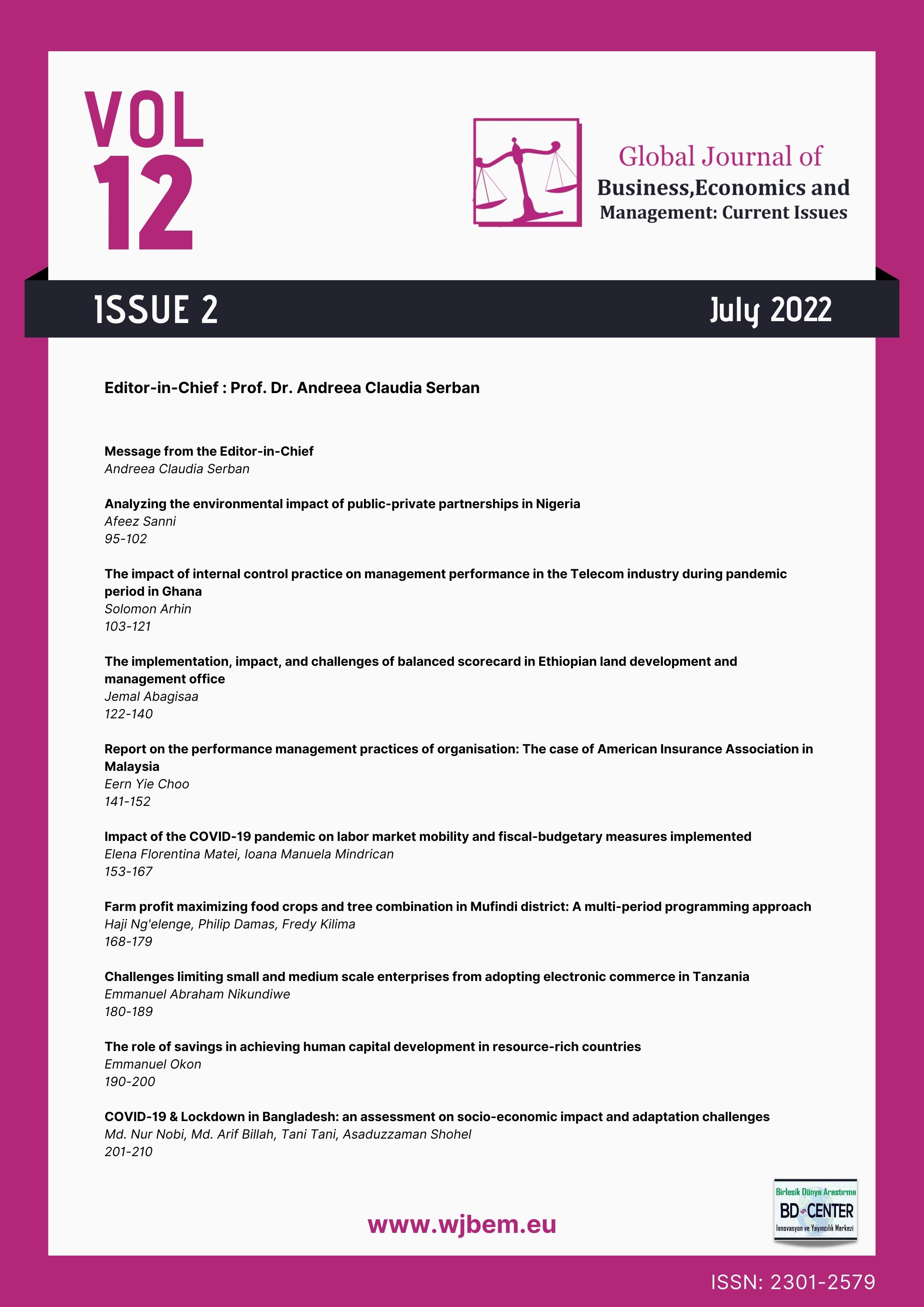Impact of the COVID-19 pandemic on labor market mobility and fiscal-budgetary measures implemented
Main Article Content
Abstract
Over time, history has shown us that humanity has faced numerous epidemics and has brought more or less devastating consequences. Migration and spatial mobility of people have over time played a key role in the spread of epidemics, as travel from one region to another has facilitated the transmission of diseases. The COVID-19 pandemic has affected the lives of the population, but the most affected category of the population remains migrants, as this category represents on average about 24% of all doctors and 16% of all care staff, who are at the forefront of the sanitary crisis COVID-19. The approach of this paper focuses on presenting and detailing the implications of the pandemic from a demographic and economic point of view. The aim of this paper is to identify the impact of the pandemic on labor market mobility and fiscal-budgetary measures taken by European states in this context. The database used to carry out this work is represented by statistical data taken from the websites of national and European institutions. Compared to the way of presenting the information from the bibliographic references mentioned at the end of the research, in this paper are found only the essential aspects and particularities of the chosen research topic, which contributes to creating an overview of this topic.
Downloads
Article Details

This work is licensed under a Creative Commons Attribution 4.0 International License.
The Global Journal of Business Economics and Management: Current Issues is an open-access journal. The copyright holder is the author or authors. Licensee: Birlesik Dunya Yenilik Arastirma ve Yayincilik Merkezi, North Nicosia, Cyprus. All articles can be downloaded free of charge. Articles published in the Journal are Open-Access articles distributed under the CC-BY license [Attribution 4.0 International (CC BY 4.0)].

